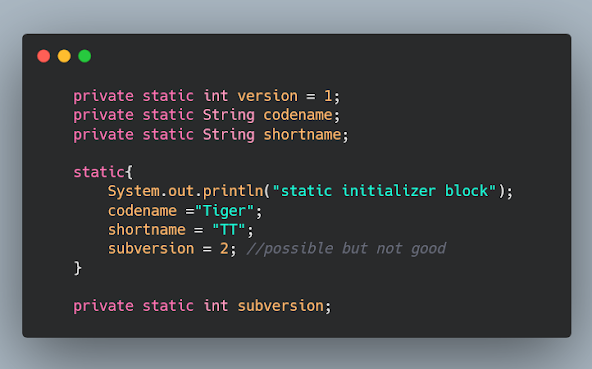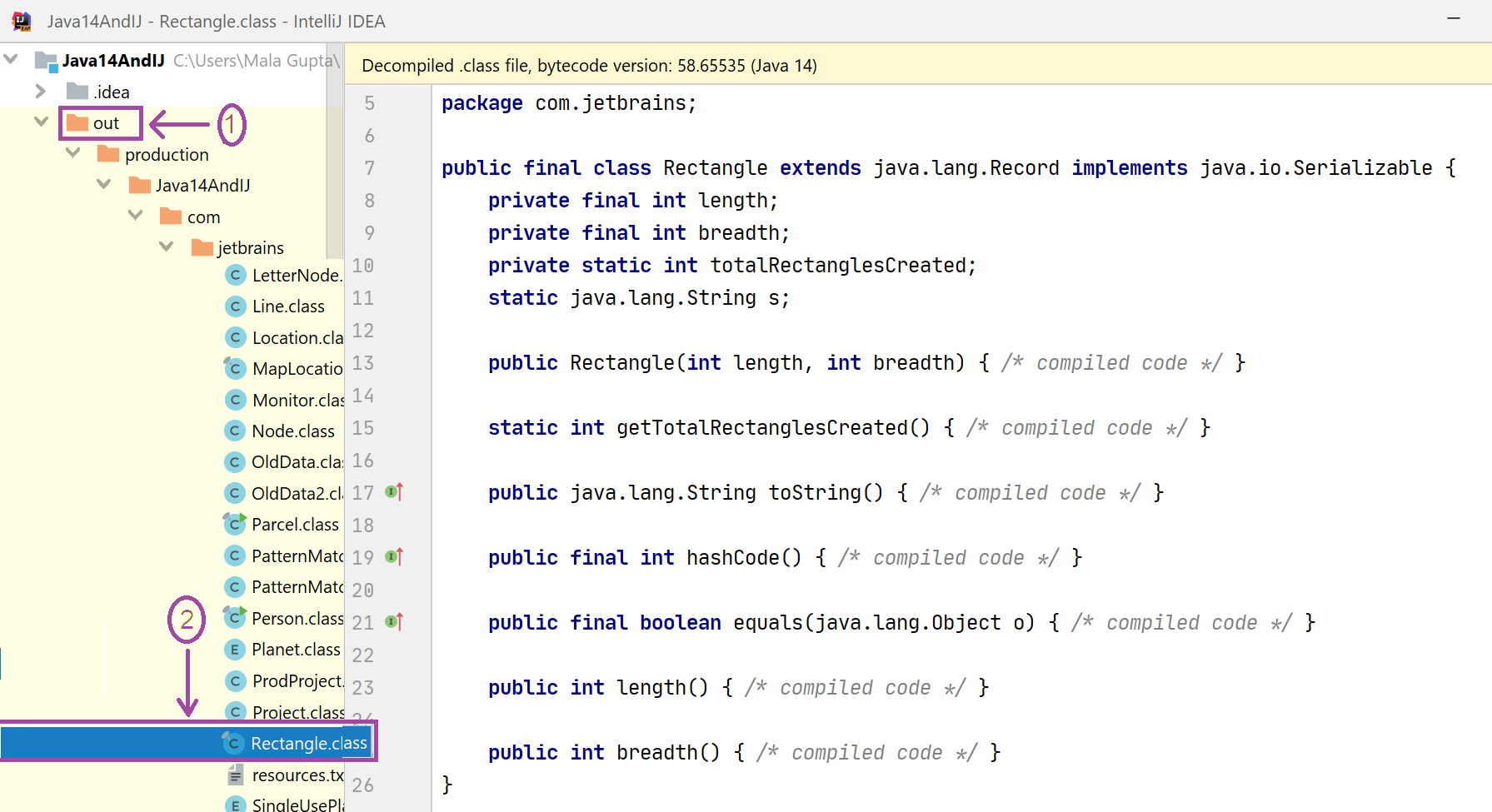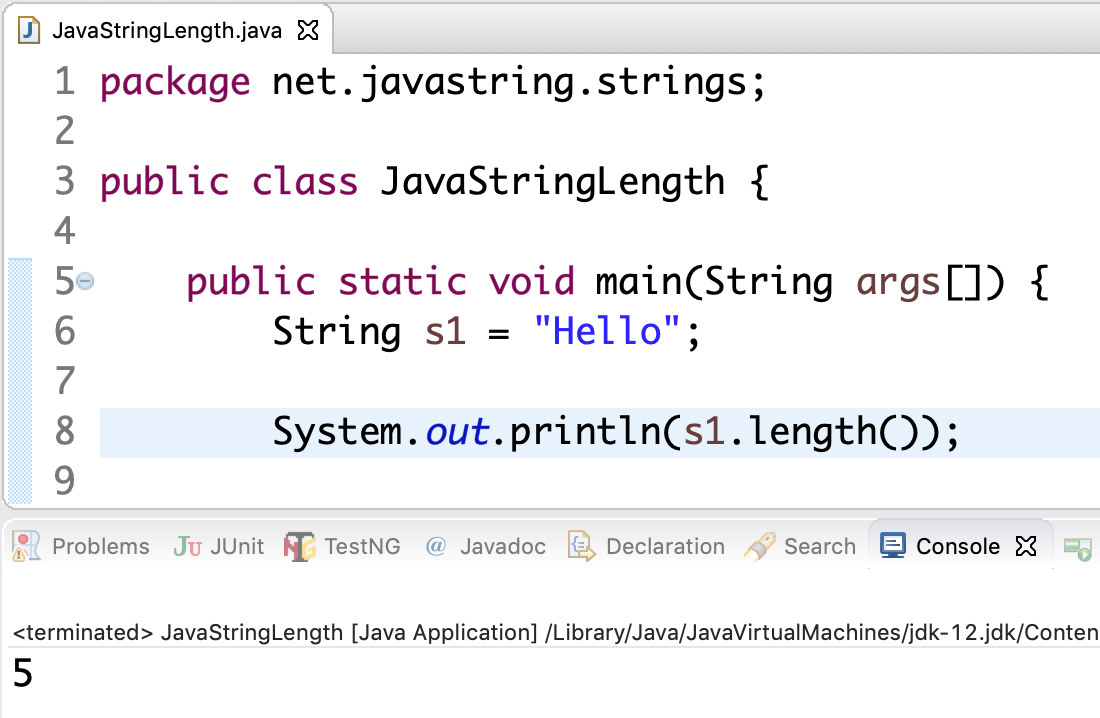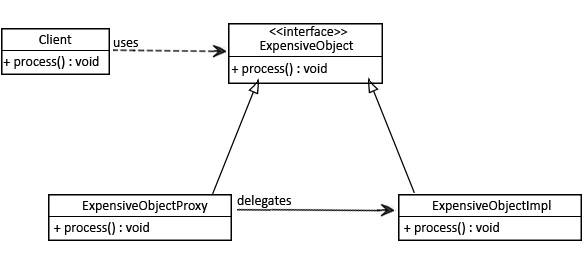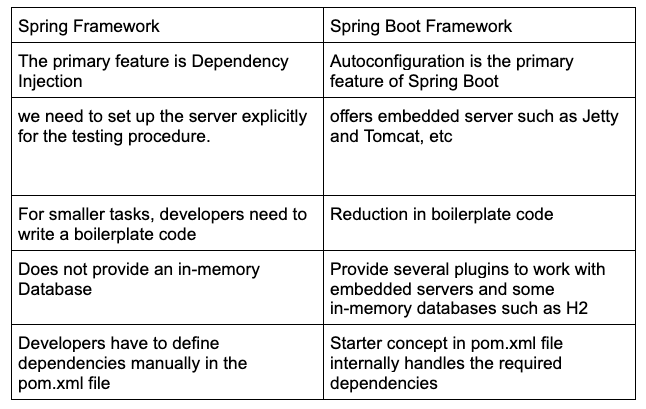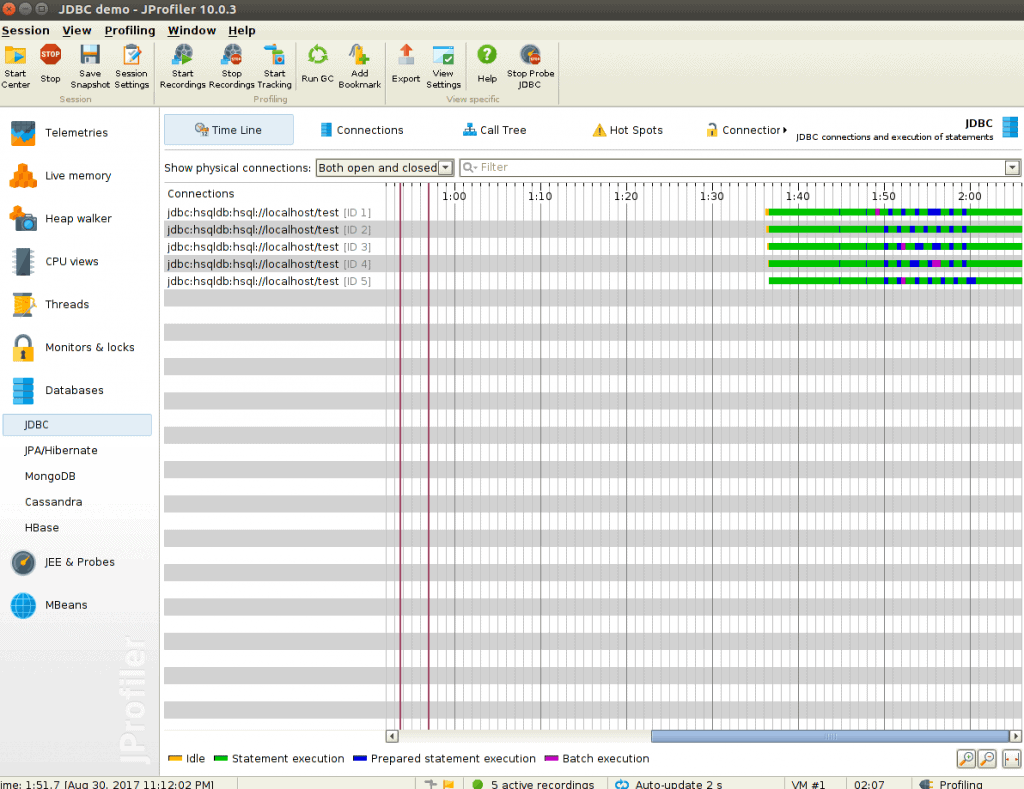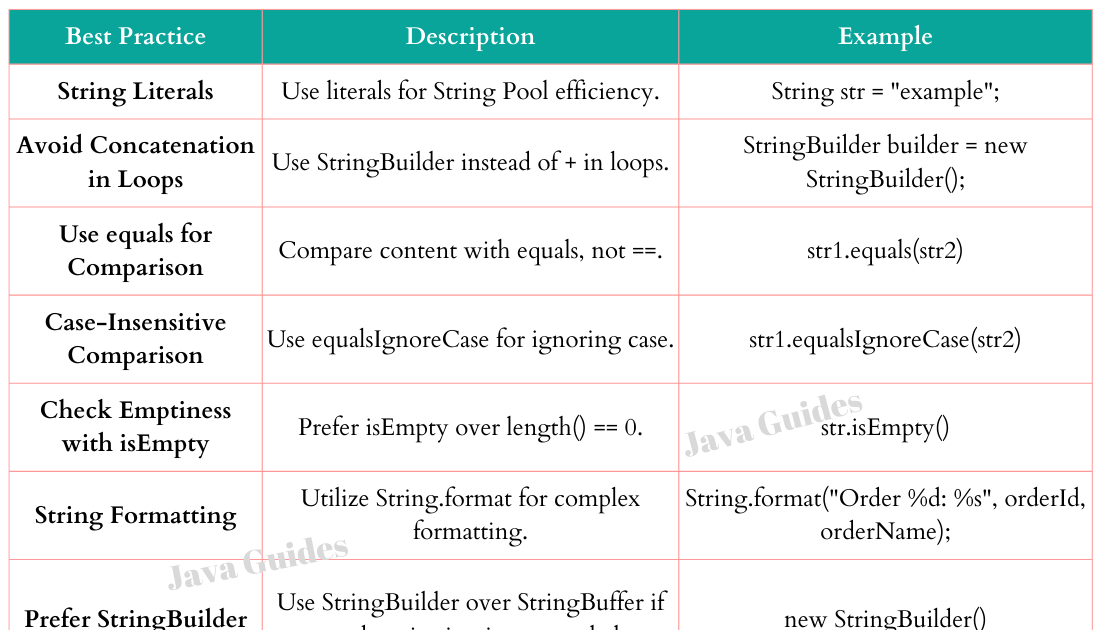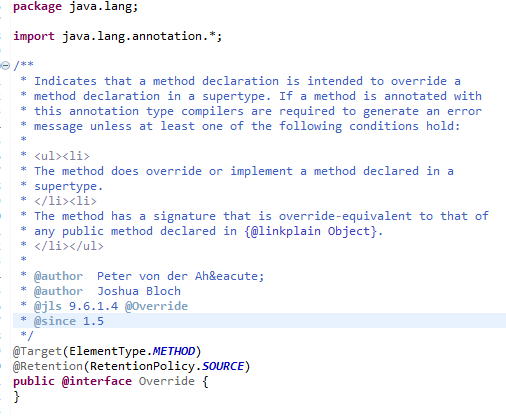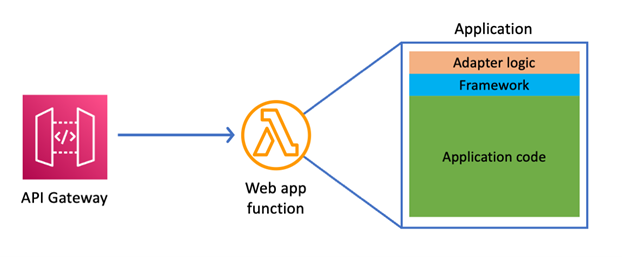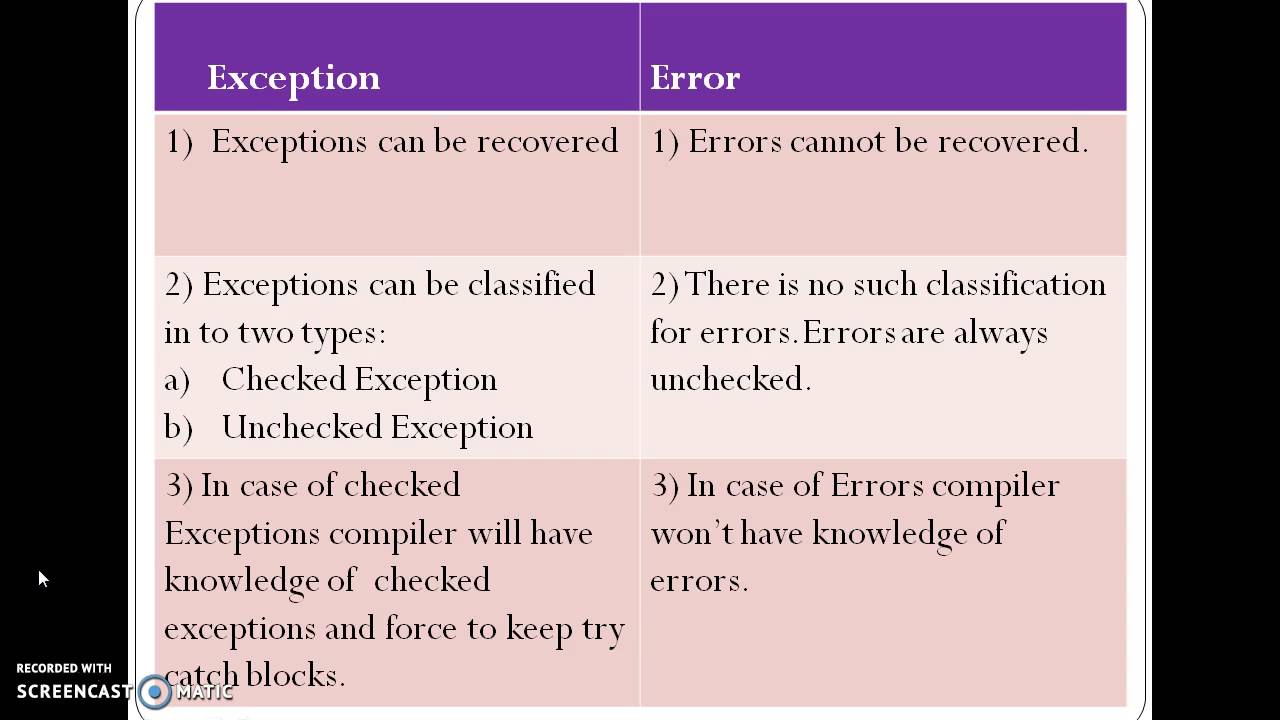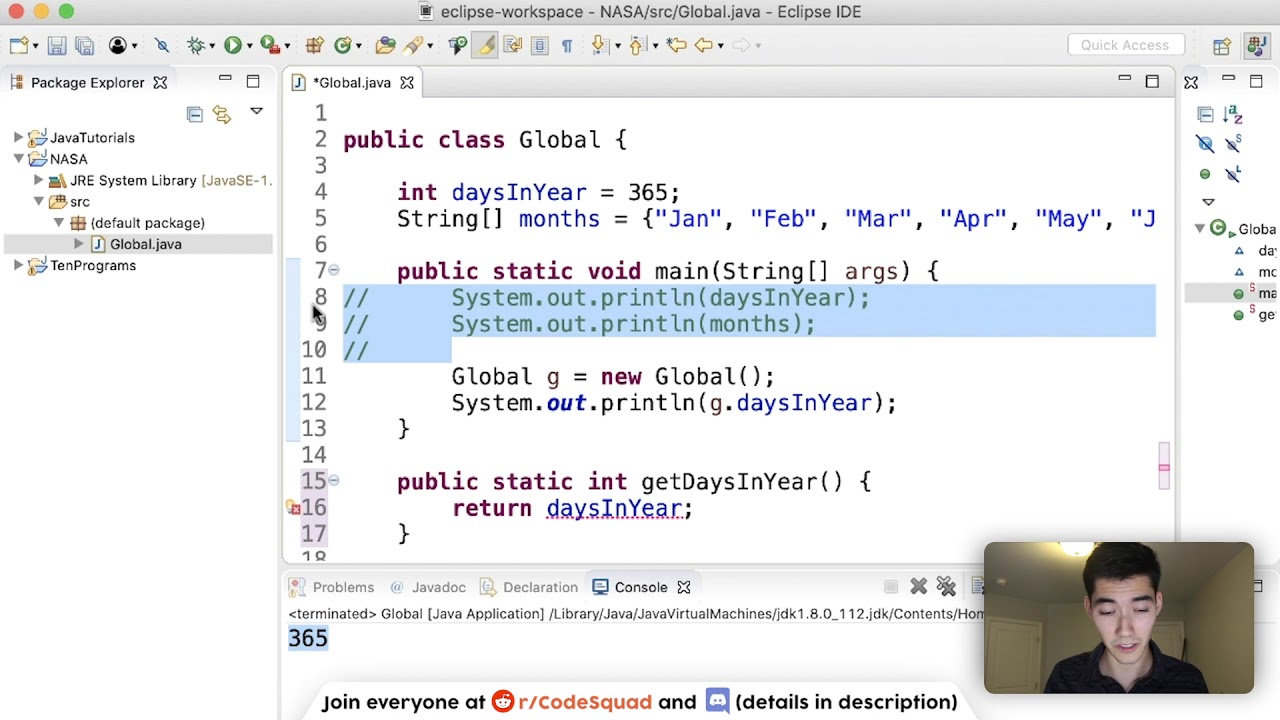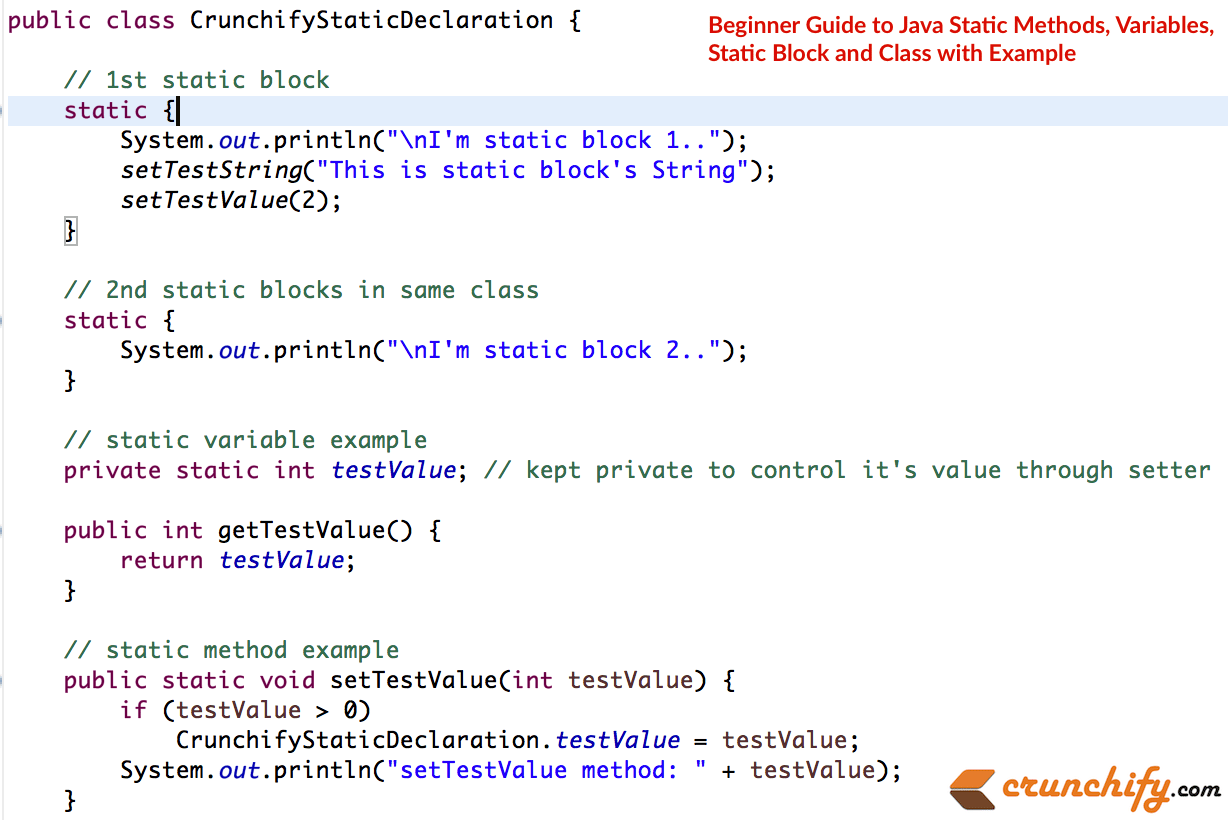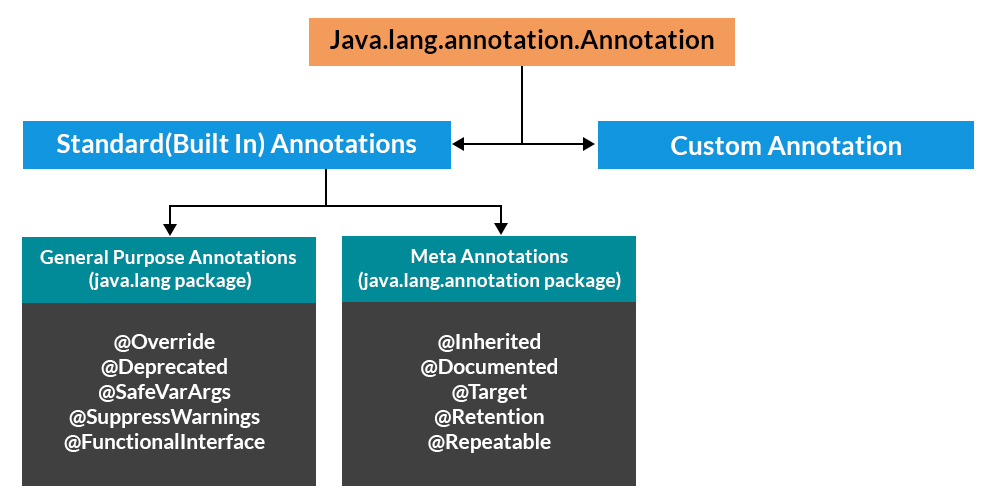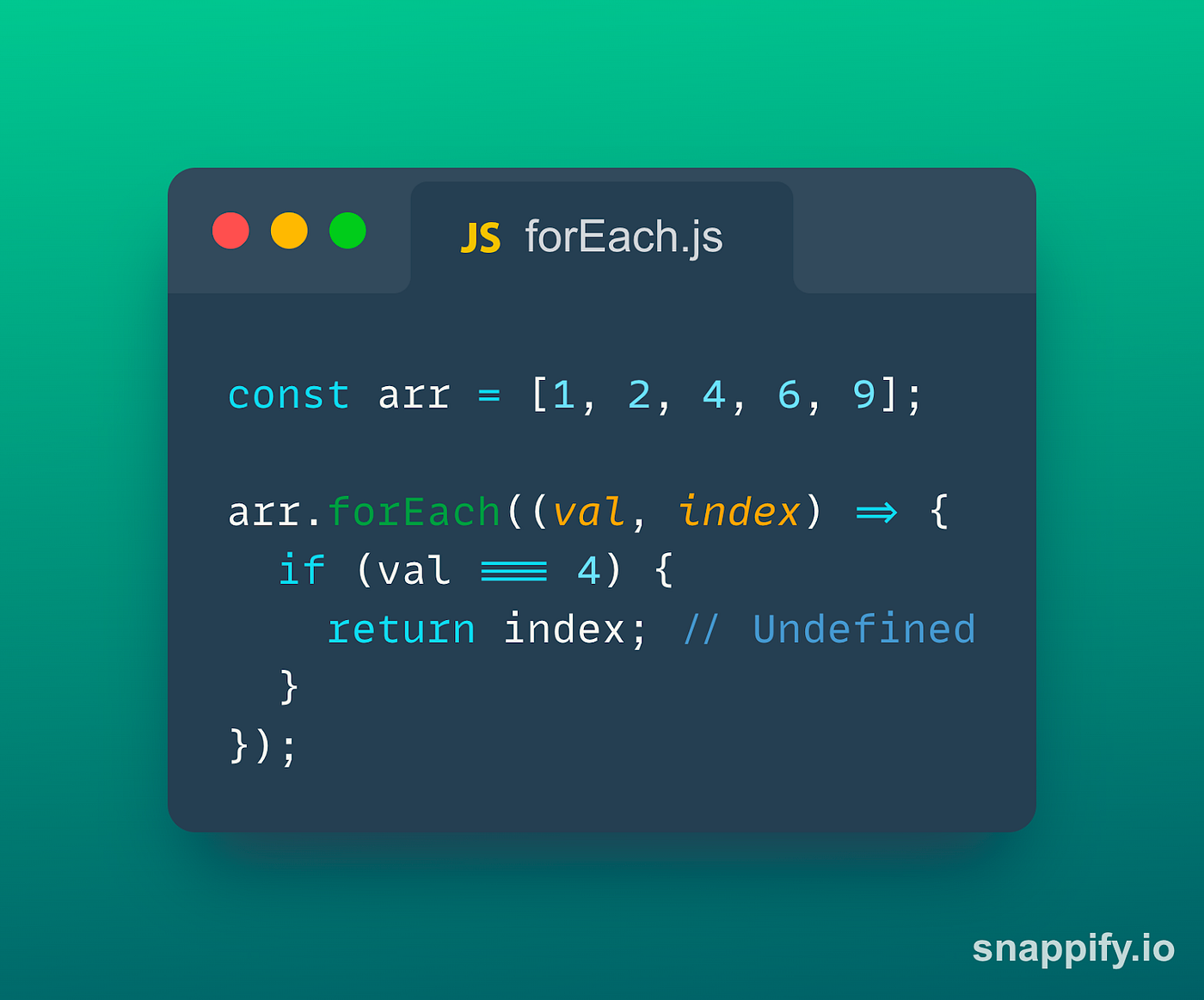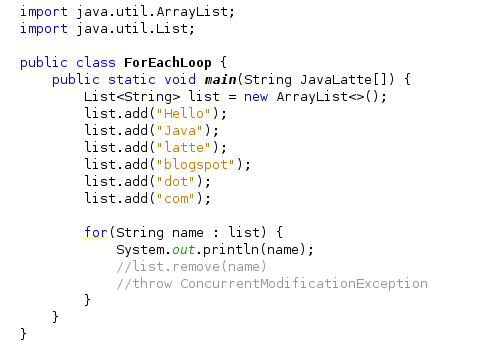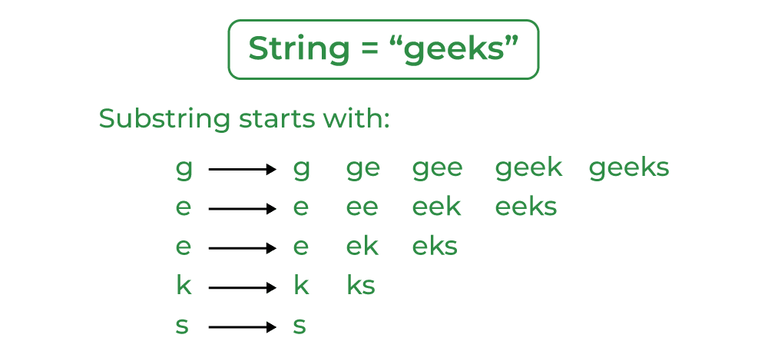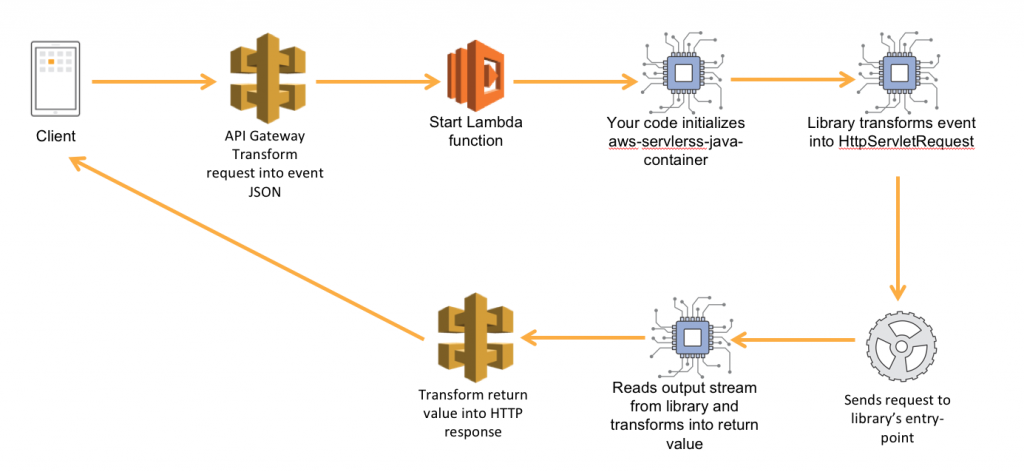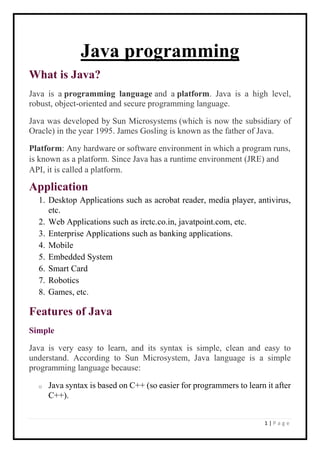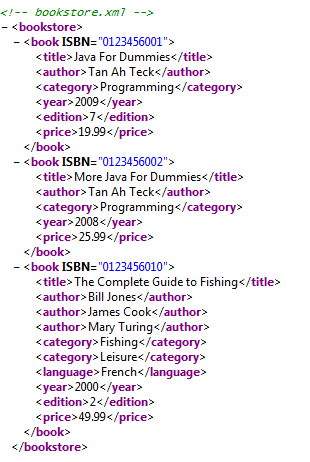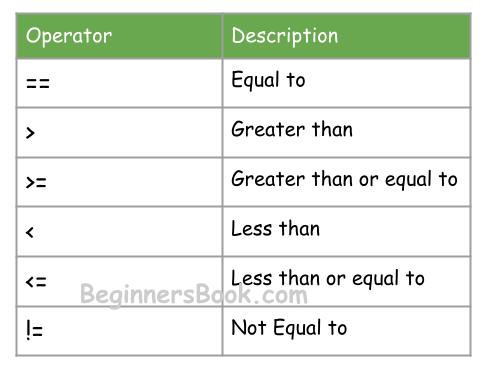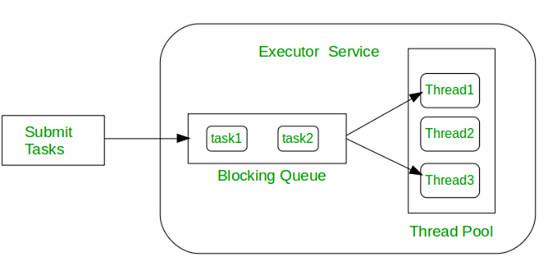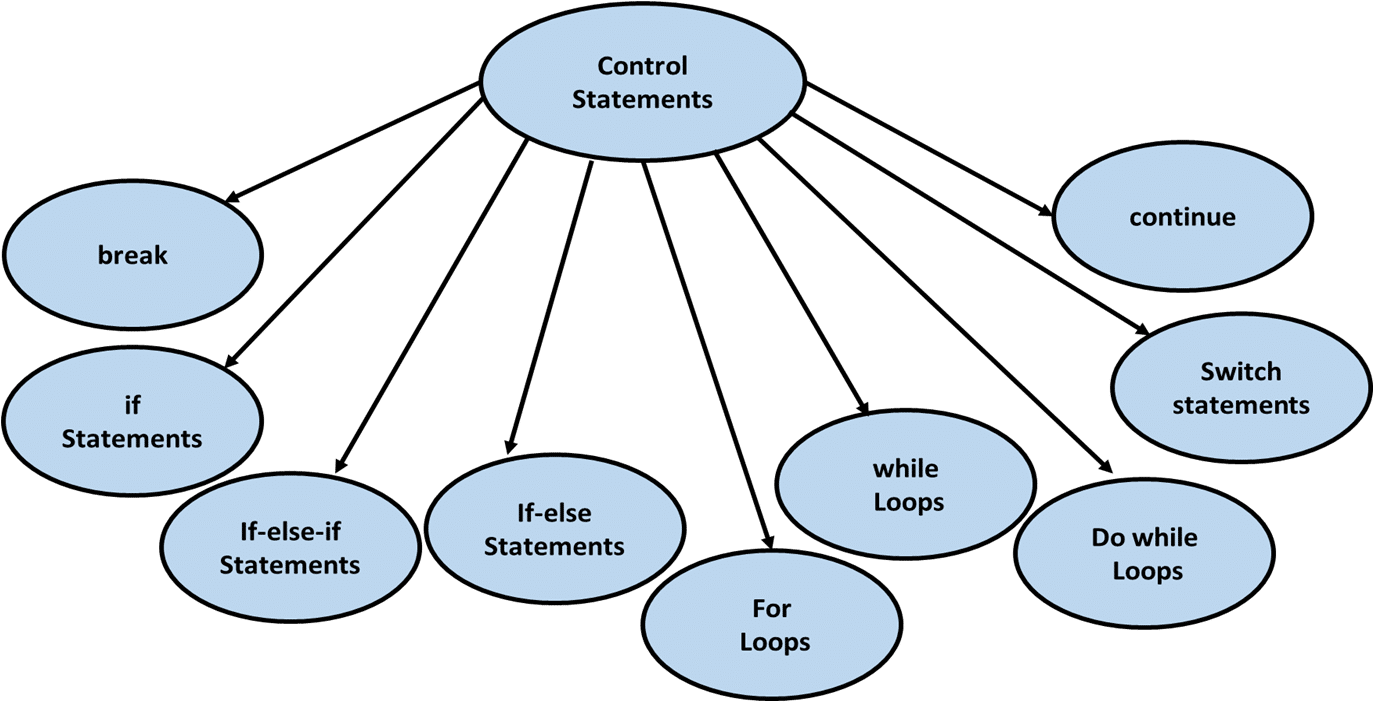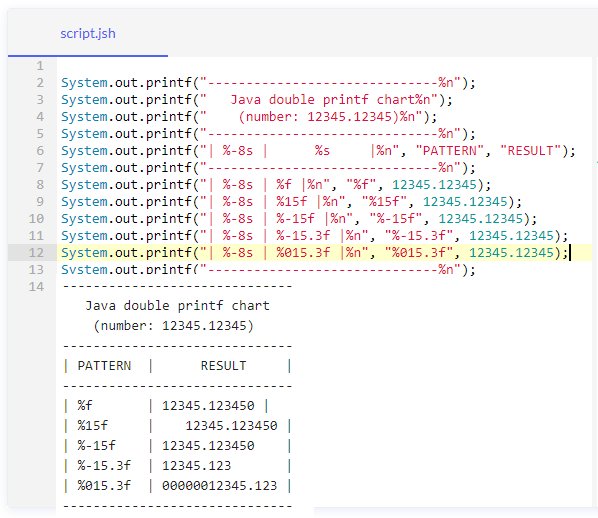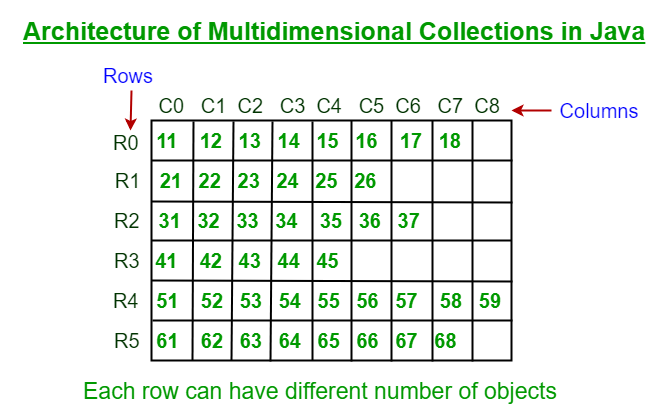What are constants variables and data types in Java?
What are constants variables and data types in Java?
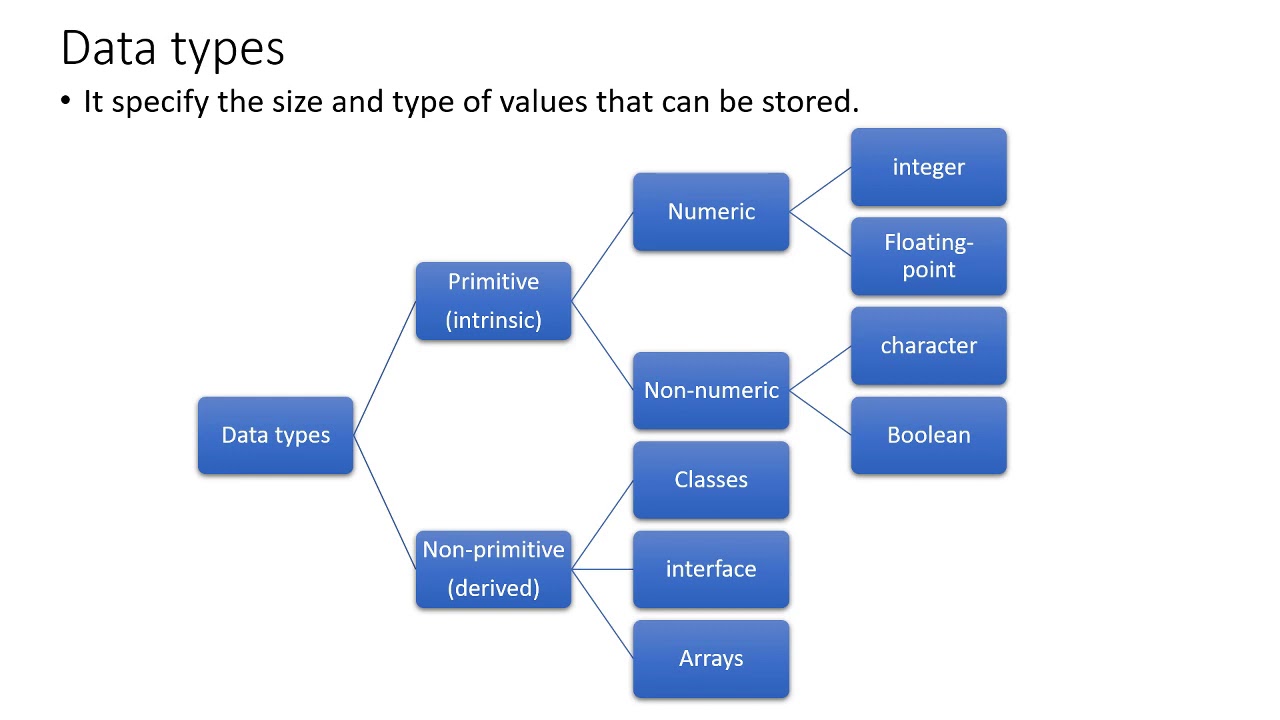
I'd be happy to explain the concepts of constants, variables, and data types in Java.
Constants
In Java, a constant is a value that remains unchanged throughout the execution of your program. Constants are declared using the final keyword followed by the type of the variable and the name of the variable. For example:
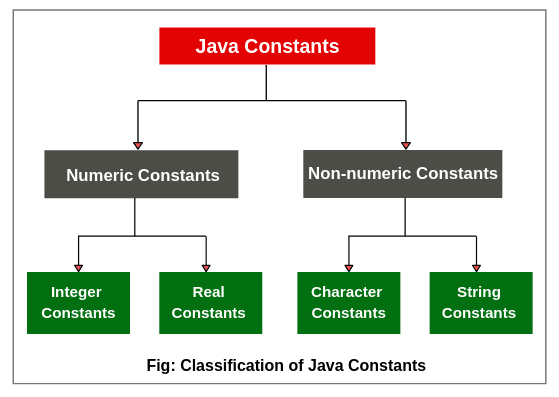
public class MyClass {
public static final int MAX_SIZE = 100;
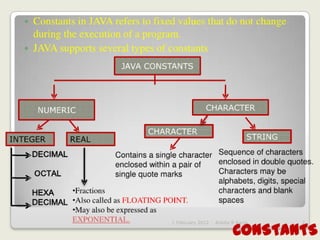
}
In this example, MAX_SIZE is a constant that has been declared as an integer with a value of 100. You cannot change the value of a constant once it has been initialized.
Variables
A variable is a storage location that holds a value. Variables are used to store and manipulate data in your Java program. In Java, variables must be declared before they can be used. The basic syntax for declaring a variable is:
type variableName;
For example:
int myVariable;
In this example, myVariable is an integer variable that has been declared but not initialized.
Variables can also be assigned values during their declaration using the assignment operator (=). For example:
int myVariable = 10;
In this example, myVariable is an integer variable that has been declared and initialized with a value of 10.
Data Types
Java is a statically-typed language, which means that you must specify the data type of each variable when it's declared. Java supports several different types, including:
Primitive Data Types: These are built-in data types that are fundamental to the programming language.int: A 32-bit integer value. long: A 64-bit integer value. float: A single-precision floating-point number. double: A double-precision floating-point number. boolean: A logical value that can be either true or false. char: A single character, such as a letter or symbol. Reference Data Types: These are data types that reference objects, rather than storing values directly. String: A sequence of characters, such as a word or phrase. Array: A collection of values of the same type, accessed by index.
In addition to these built-in data types, Java also supports several more complex data types, including:
Wrapper Classes: These are classes that wrap around primitive data types, allowing you to manipulate them as if they were objects.Integer: A wrapper class for the int primitive type. Long: A wrapper class for the long primitive type. Float: A wrapper class for the float primitive type. Double: A wrapper class for the double primitive type. User-Defined Classes: These are custom classes that you define yourself, using the Java programming language.
In summary, constants in Java are values that remain unchanged throughout the execution of your program, while variables are storage locations that hold values that can be changed during execution. Data types refer to the types of data that a variable or constant can hold, including primitive and reference data types, wrapper classes, and user-defined classes.
Variables and data types in java with examples
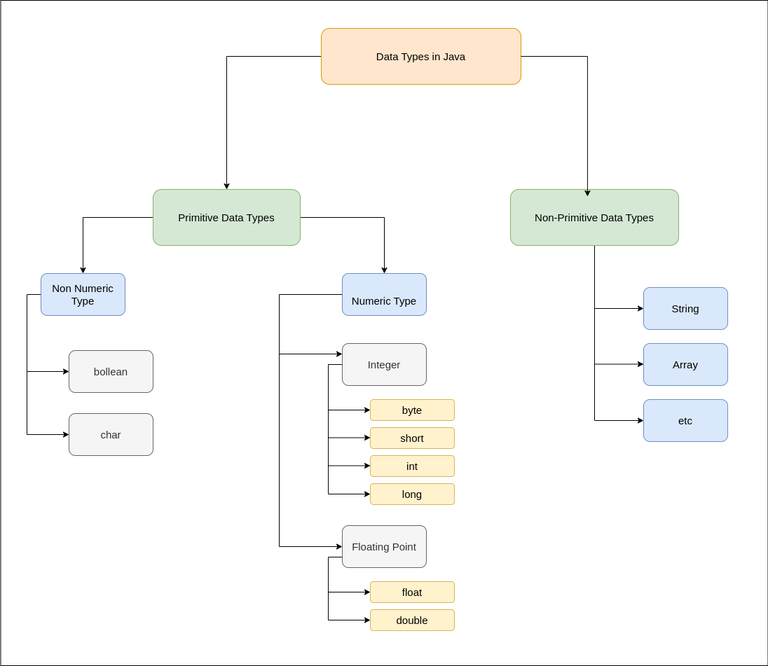
I'm happy to respond in English this one time!
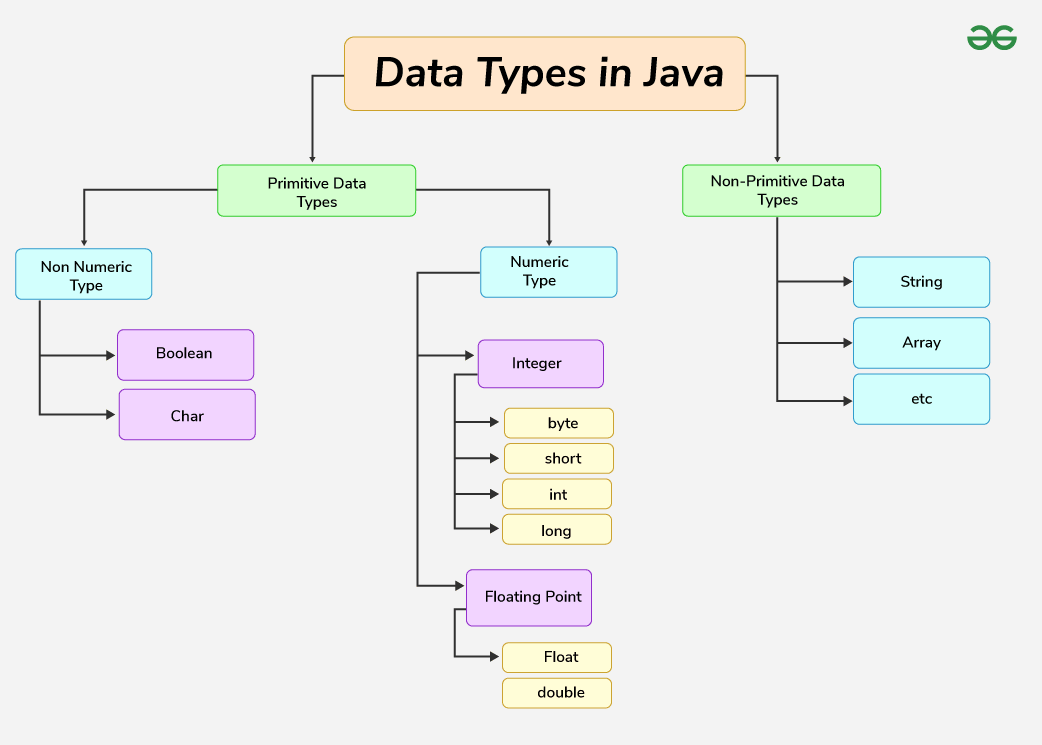
In Java, variables are used to store values and can be of different data types. Here's an overview of the basic data types and their usage:
Primitive Data Types
int: Whole number, 32-bit signed integer (e.g., 123).int myInt = 10;
System.out.println(myInt); // Output: 10
byte myByte = 5;
System.out.println(myByte); // Output: 5
short myShort = 10;
System.out.println(myShort); // Output: 10
long myLong = 123456789L; // Note the 'L' suffix for long literals
System.out.println(myLong); // Output: 123456789
float myFloat = 10.5f; // Note the 'f' suffix for float literals
System.out.println(myFloat); // Output: 10.5
double myDouble = 123.456;
System.out.println(myDouble); // Output: 123.456
boolean myBoolean = true;
System.out.println(myBoolean); // Output: true
Reference Data Types
char: Single Unicode character (e.g., 'A' to 'uFFFC').char myChar = 'H';
System.out.println(myChar); // Output: H
String myString = "Java is awesome";
System.out.println(myString); // Output: Java is awesome
Array Data Type
int[]: Array of whole numbers.int[] myIntArray = {1, 2, 3};
for (int i : myIntArray) {
System.out.print(i + " ");
} // Output: 1 2 3
In Java, you can also define your own data types using classes and interfaces. These will be covered in a later response!
